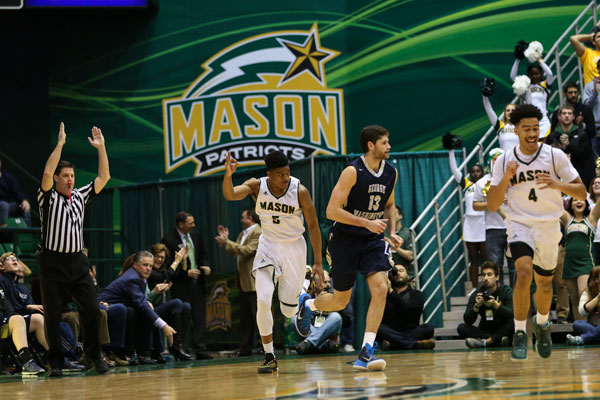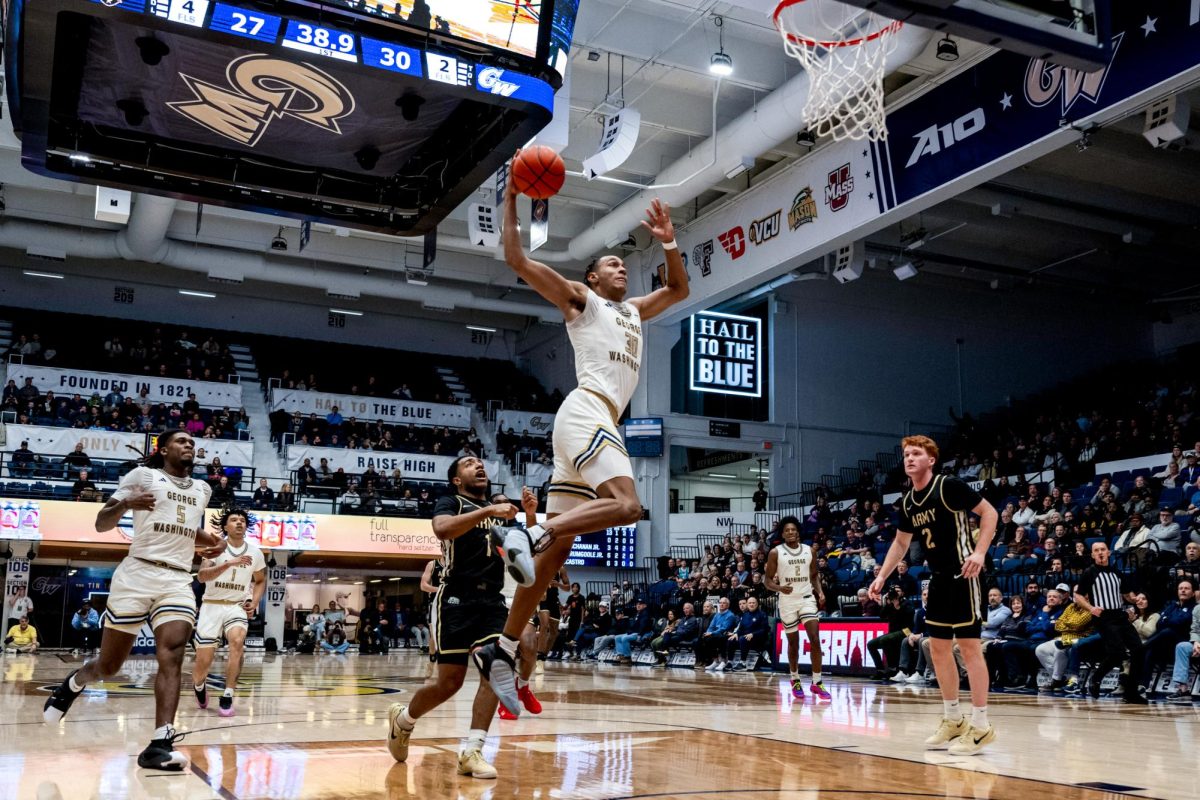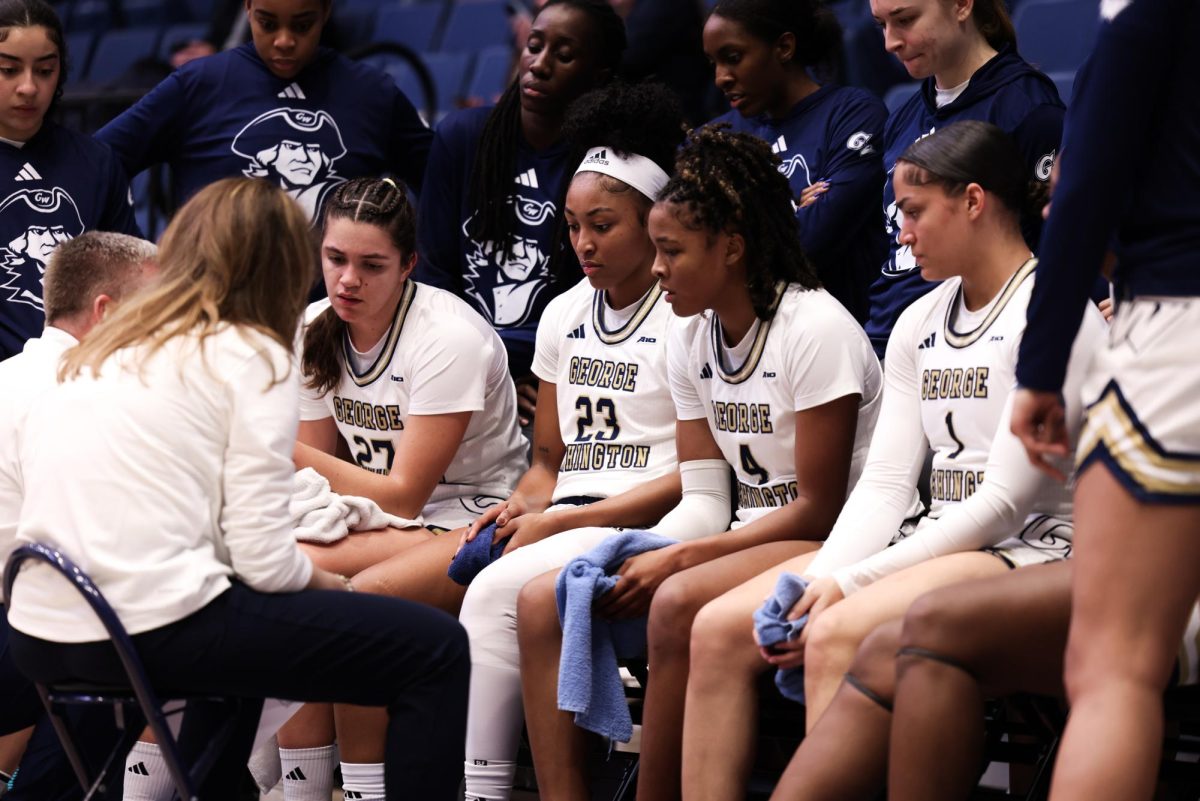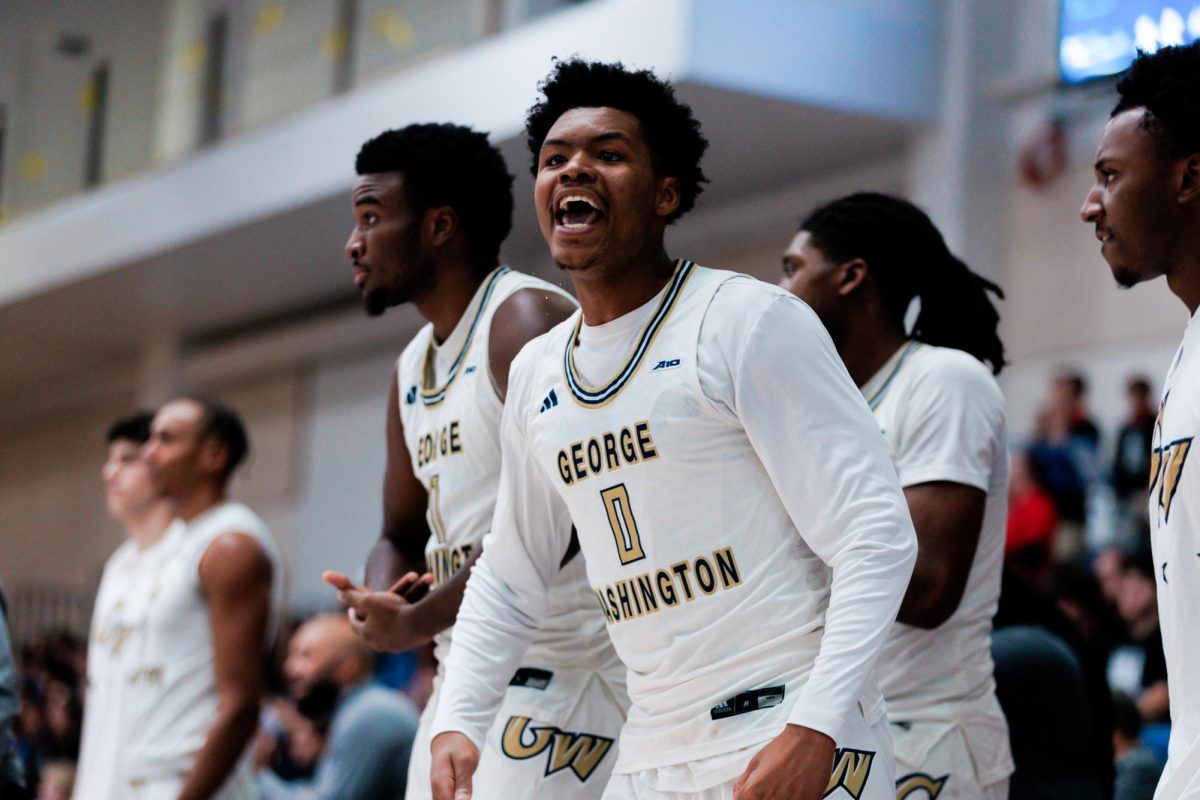When sophomore guard Paul Jorgensen chucked up a prayer to force overtime in the waning seconds of regulation Thursday night against Richmond, it looked like GW would finally pull away.
But the game’s next two three-pointers, both by Richmond, proved more decisive.
After GW climbed to two separate leads in the first extra period, senior swingman Trey Davis and redshirt junior Marshall Wood quietly knocked down two in a row from deep, helping the Spiders force a second overtime where they would outscore the Colonials 13–5 and snap a 13-game winning streak at the Smith Center dating back to last season.
Instead of serving as a turning point, the two overtime periods reflected one of the most deficient aspects of the Colonials’ game. It’s what helped Richmond gain and maintain a substantial lead for much of the contest, and seems to be a growing problem as of late: poor outside-shooting defense.
“I made a lot of mistakes defensively, and as a team, we didn’t play good team defense and it cost us,” senior guard Joe McDonald said following the eight-point loss.
It’s unfamiliar territory for a team that’s often been considered a defensive powerhouse in the Atlantic 10.
Just last season, the Colonials boasted the 4th-best defense in the conference, conceding an average of 62.0 points per game, and held their opponents to a 31.9 percent clip from three-point range, in large part due to its stingy 1-3-1 defensive scheme.
But midway through league play of the 2015‒2016 campaign, GW’s once-tenacious defense seems to have lost some of its luster. The Colonials are currently giving up an average 68.5 points per game and allowing a 32.6 percent clip from beyond the arc.
Weak three-point defense was the dagger for the Colonials Thursday night. The Spiders went 11-of-19 (58 percent) from deep – the second-most three-point field goals allowed by GW this season and the highest efficiency with which any opponent has scored from that area.
“We tried to play 1-3-1 to start the second half but we had no energy, so we had to get right out of that,” head coach Mike Lonergan said. “We had to stick with our man-to-man, we finally got focused and played pretty good defense but then we reverted back to fouling and guys taking plays off.”
To put Richmond’s three-point performance in perspective, the Spiders were coming off an eight-point loss at home to Davidson, where they went an anemic 0-for-15 from deep.
Wood, who transferred from Virginia Tech in 2014, was all but forgotten about by GW’s guards. The sharpshooter went a deadly 7-for-8 from three-point range at the Smith Center, while four more Spiders added a triple each.
“Marshall Wood – that was the thing that was most disappointing. We knew he could shoot, but we left him open early and we left him open late. I just wish I knew why,” Lonergan said. “He destroyed us with threes that weren’t off any great plays. They were just him being wide-open and us not taking enough pride in our defense and guarding the guys we were supposed to guard.”
The Colonials also gave up an uncharacteristically high number of three-pointers in its two games prior to Richmond. Dayton scored nine and Massachusetts sank eight, both shooting above 40 percent from long.
In fact, during GW’s first 10 games this season, only two teams shot better than 30 percent from three-point range against the Colonials. In its last 11 games, eight teams shot over 30 percent and five shot over 40. GW has gone 7‒4 during that stretch.
Even in Sunday’s 76–70 decision over George Mason, the Colonials let the Patriots go 7-for-20 (35 percent) against a team that averages a 29.9 percent three-point shooting clip.
It’s a problem GW must solve, but not one it’s unaware of. There was a common exclamation Lonergan directed at his defense all game in the six-point victory at Fairfax: “No threes.”







